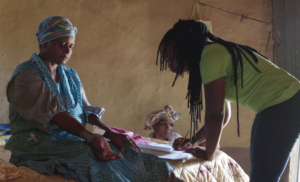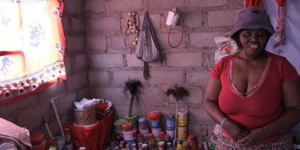
When Zane Wilson experienced her first panic attack in the early 1990s, South Africa had minimal mental health support infrastructure. After struggling to find help locally, she traveled to England and the United States before finally receiving proper diagnosis and treatment from a Johannesburg psychiatrist.
This experience led Wilson to organize a community meeting at Sandton Library, expecting 20 attendees. When nearly 100 people showed up, many having traveled from neighboring provinces, she realized the depth of the unmet need for mental health support in South Africa.
What began in Wilson’s dining room as a small call center has grown into a nationwide organization that operates without government funding. The South African Depression and Anxiety Group (SADAG) now manages over 30 helplines with more than 300 counselors, handling everything from routine mental health inquiries to active suicide calls. The organization has become so essential that its number is listed as the official mental health helpline on South Africa’s national health department website.

The organization played a crucial role during the Life Esidimeni tragedy in 2015, when it joined legal action to protect psychiatric patients’ rights. The Life Esidimeni tragedy unfolded when the Gauteng health department terminated its contract with a psychiatric care hospital, forcibly transferring patients to unlicensed NGO facilities. At least 144 mental health patients died as a result of negligent care, malnutrition, and dehydration during this botched transfer process, marking one of South Africa’s worst post-apartheid healthcare disasters.
SADAG continues to advocate for better mental health services across the country. Today, the organization operates three call centers in Johannesburg, Cape Town, and Durban, providing 24/7 support to South Africans in crisis.
“There’s so much to do, but nothing is more important than creating spaces in communities from which counselors can work safely and effectively,” Wilson told Bhekisisa in October 2024, emphasizing the need for more community-based mental health infrastructure.
Read the in-depth article by Sean Christie from October 22, 2024 in Bhekisisa: How one woman set up a mental health helpline for the whole of South Africa
Related Articles

Mothers Helping Mothers: Inside South Africa’s Rural HIV Care Revolution
In South Africa’s Eastern Cape, mentor mothers — HIV-positive women turned health workers — are transforming rural maternal care, proving that peer support can bridge critical healthcare gaps.

Study That Empowers Traditional Health Practitioners to Test for HIV Expands in Rural South Africa
The NIH 5-year, $2.8m grant to Wits University and Vanderbilt University will advance traditional health practitioner-initiated HIV testing.
